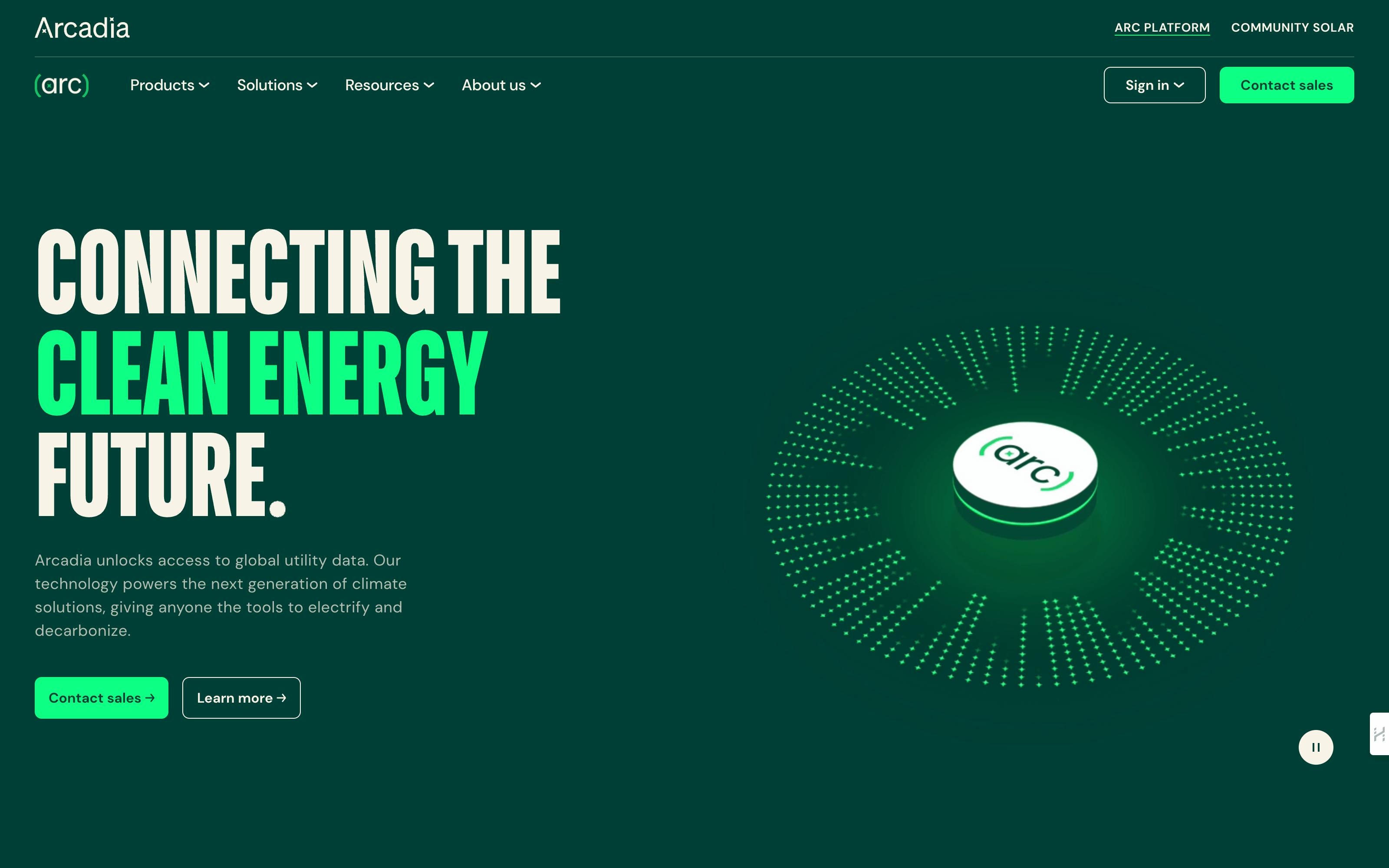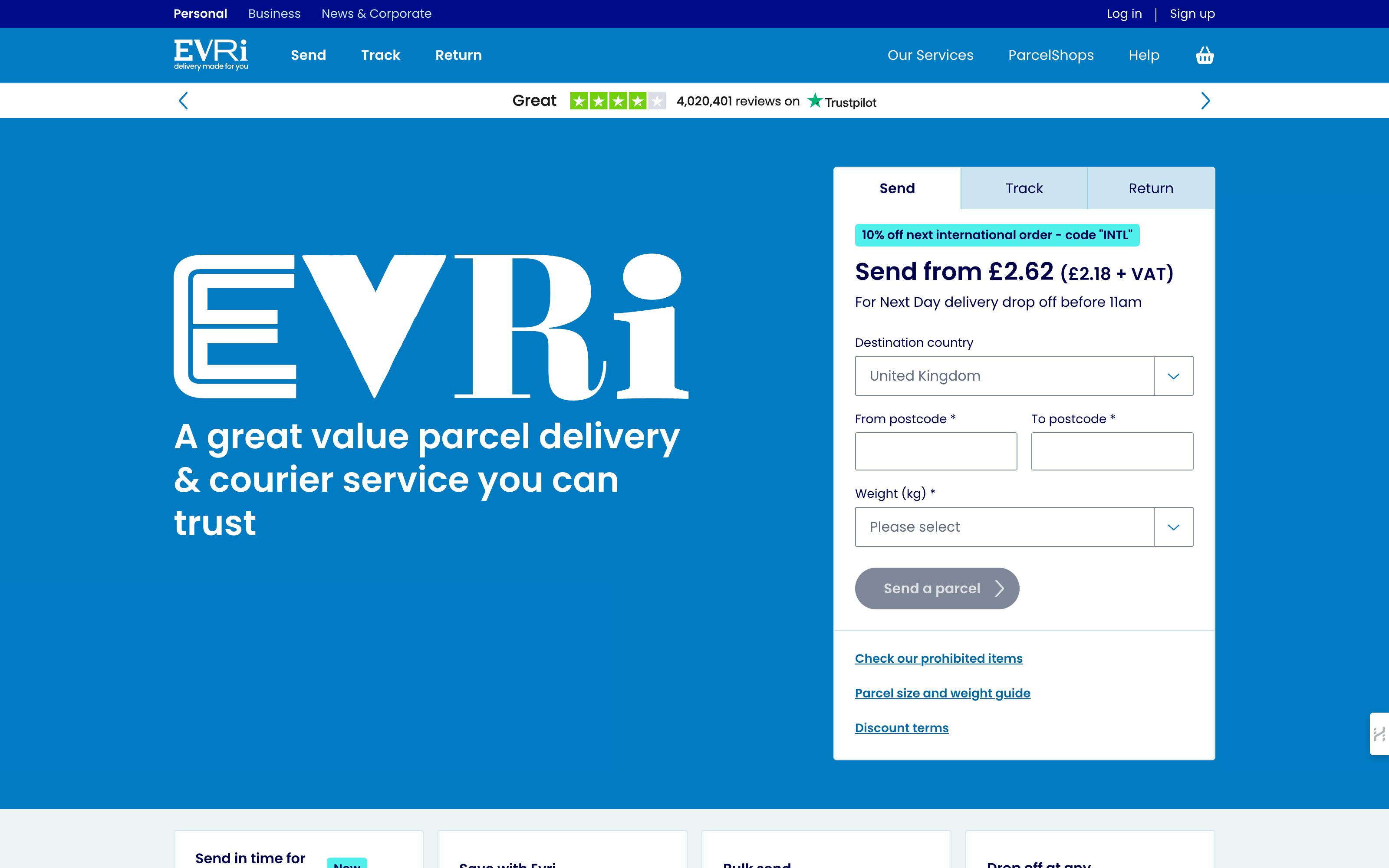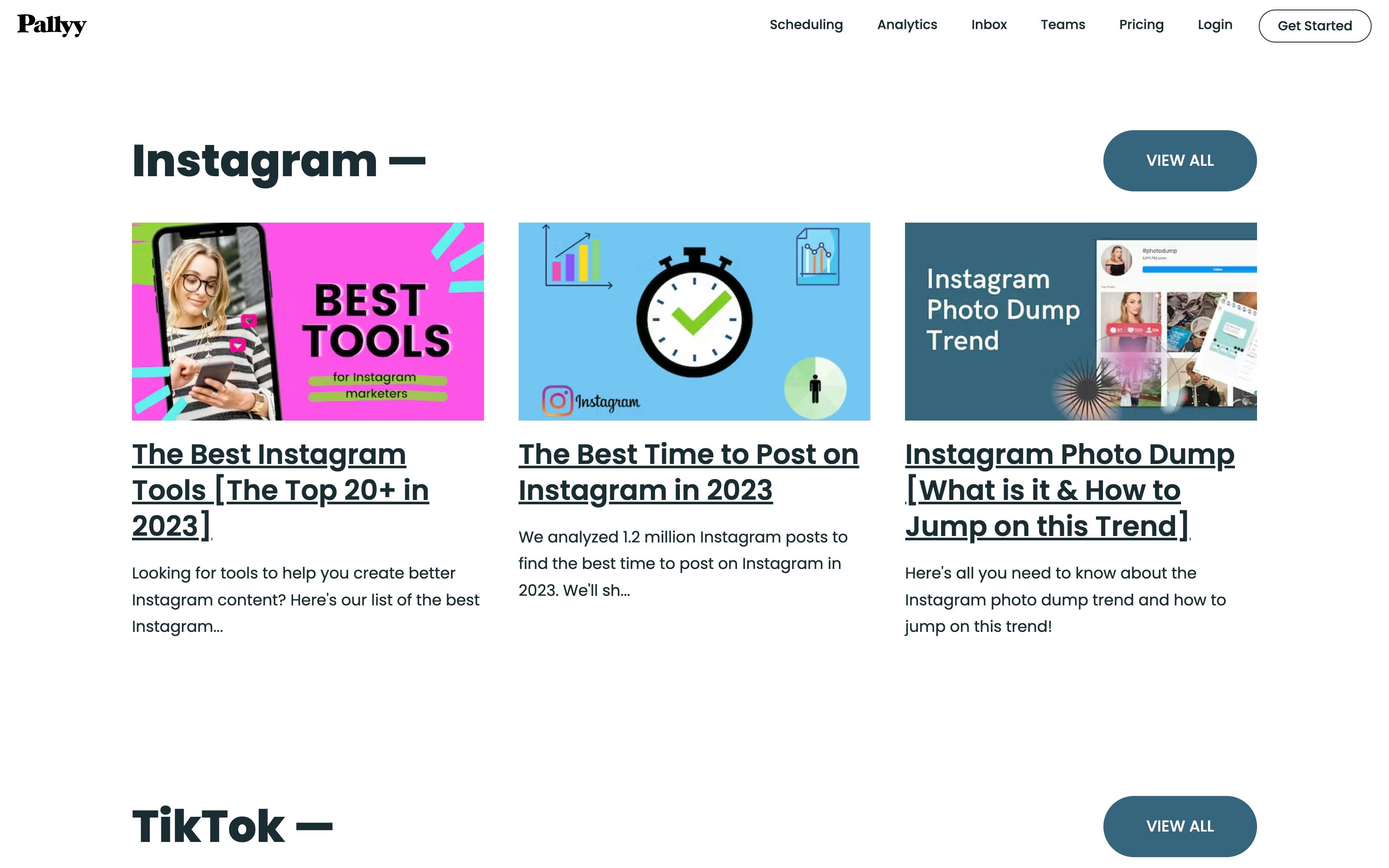
Are you looking to speed up your Vue development and improve the quality of your projects? Vue component libraries may just be the game-changer you need. The pre-built components they provide can be a great starting point for building accessible and high-performing websites and applications while saving time and effort.
In this article, we'll explore ten Vue component libraries you should know about, their benefits and features, and how to choose the right one for your project.
Let's dive in!
What are Vue component libraries?
Vue component libraries are pre-built collections of reusable components that you can use in your Vue applications. These libraries provide a set of reusable code for building blocks like buttons, forms, tabs, modals, sliders, and cards. They are designed to work seamlessly with Vue, making it easier to integrate them into your codebase.
Vue component libraries are fully customizable. They allow you to adjust the appearance and behavior of their components to fit your requirements in terms of branding, design, and functionality. They save you time and effort during the development process.
Top 10 Vue component libraries
1. Vuetify
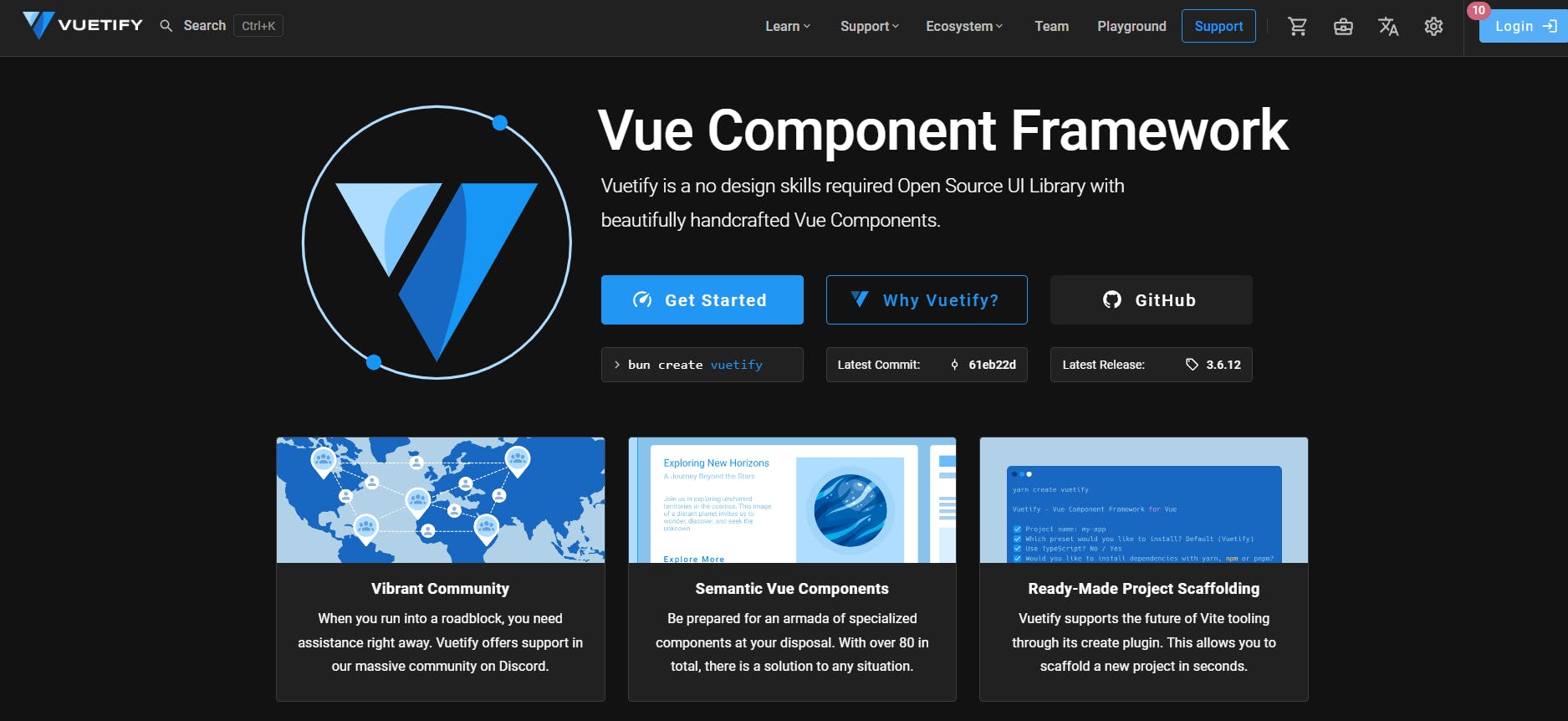
Vuetify is one of the most popular Vue component libraries. It was designed to help developers quickly build responsive and accessible web applications.
Vuetify follows Google's Material Design principles and offers several pre-designed UI components. It has 39.3k GitHub stars as of this writing.
Key features
- Follows Material Design’s guidelines
- Offers 76 components
- RTL support
- Automatic treeshaking
- Supports form validation
- Supports Vue CLI-3 and comes with a Vuetify playground
- Offers free and premium themes
- Supports server-side rendering (SSR) and Nuxt
- Built-in internationalization (i18n) for 45 languages
2. Quasar
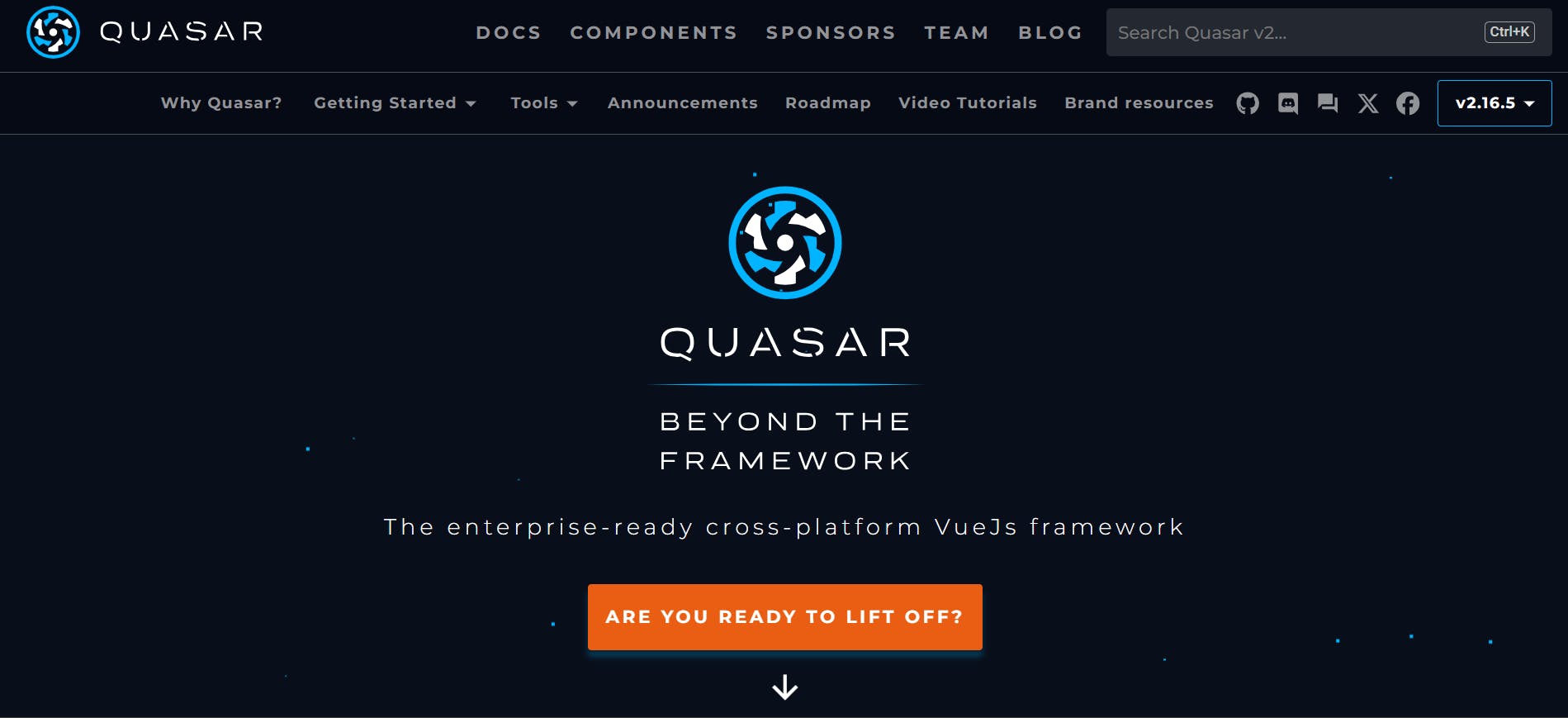
Quasar is a versatile Vue framework known for its ability to create high-performance web, mobile, and desktop applications. It stands out for its rich feature set, including a wide array of UI components and powerful CLI tools.
It has 25.5k GitHub stars as of this writing.
Key features
- Powerful CLI with plugins
- RTL support
- Flex playground
- Offers 72 components
- Layout builder
- Built-in animations
- Theme builder
- Internationalization (i18n)
- Cross-platform development (SPA, SSR, PWA, Mobile, Desktop)
3. PrimeVue
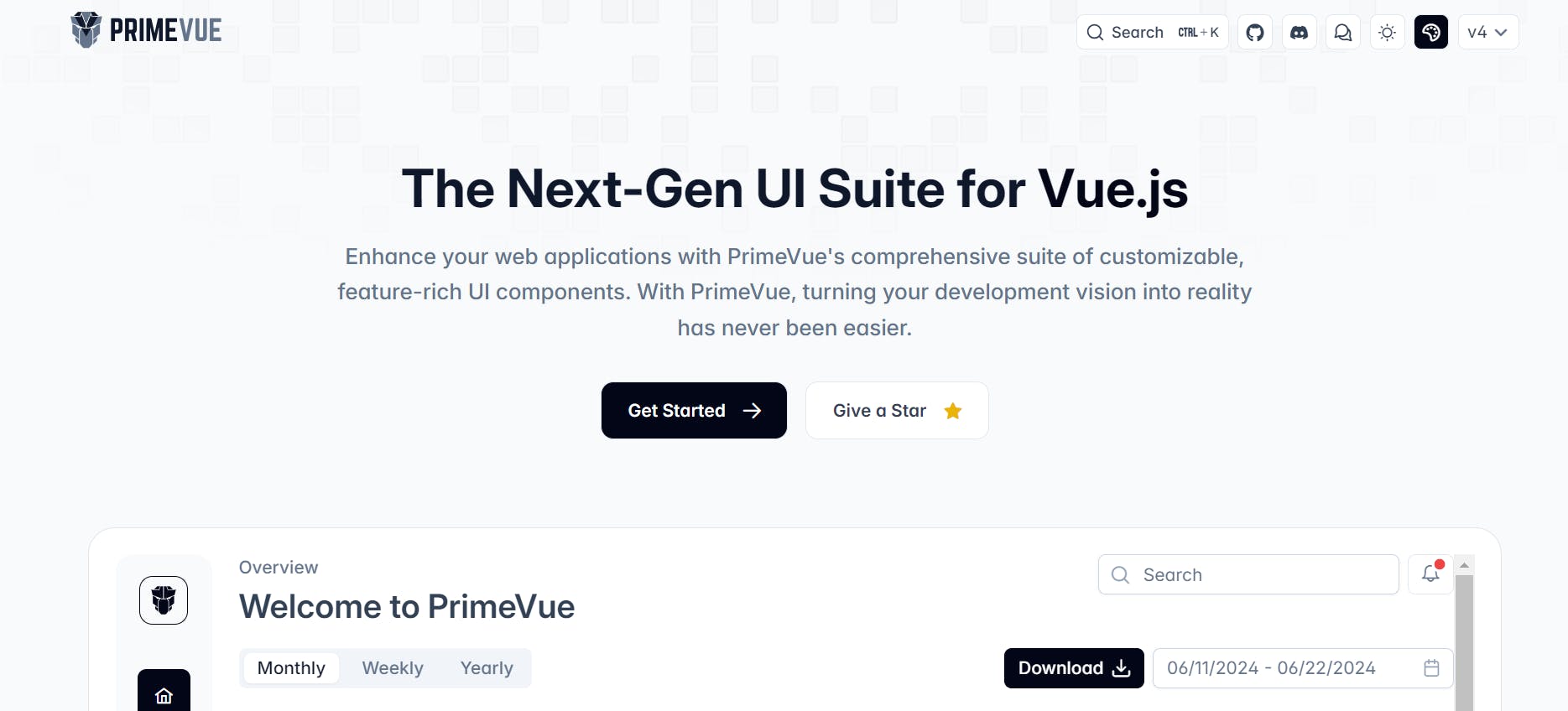
PrimeVue is a Vue component library that provides well-designed, minimalistic UI components that give your websites and applications a unique feel and look while simplifying the development process.
The library is part of the PrimeFaces family, which includes popular UI frameworks for Angular, React, and Java. As of this writing, it has 8.8k GitHub stars.
Key features
- Supports Vite and Nuxt
- Premium themes and templates
- 400+ UI building blocks for various website layouts
- Primeflex CSS utility library
- PrimeIcons icon library
- Offers 80+ components
- Styled and unstyled mode
4. Element Plus
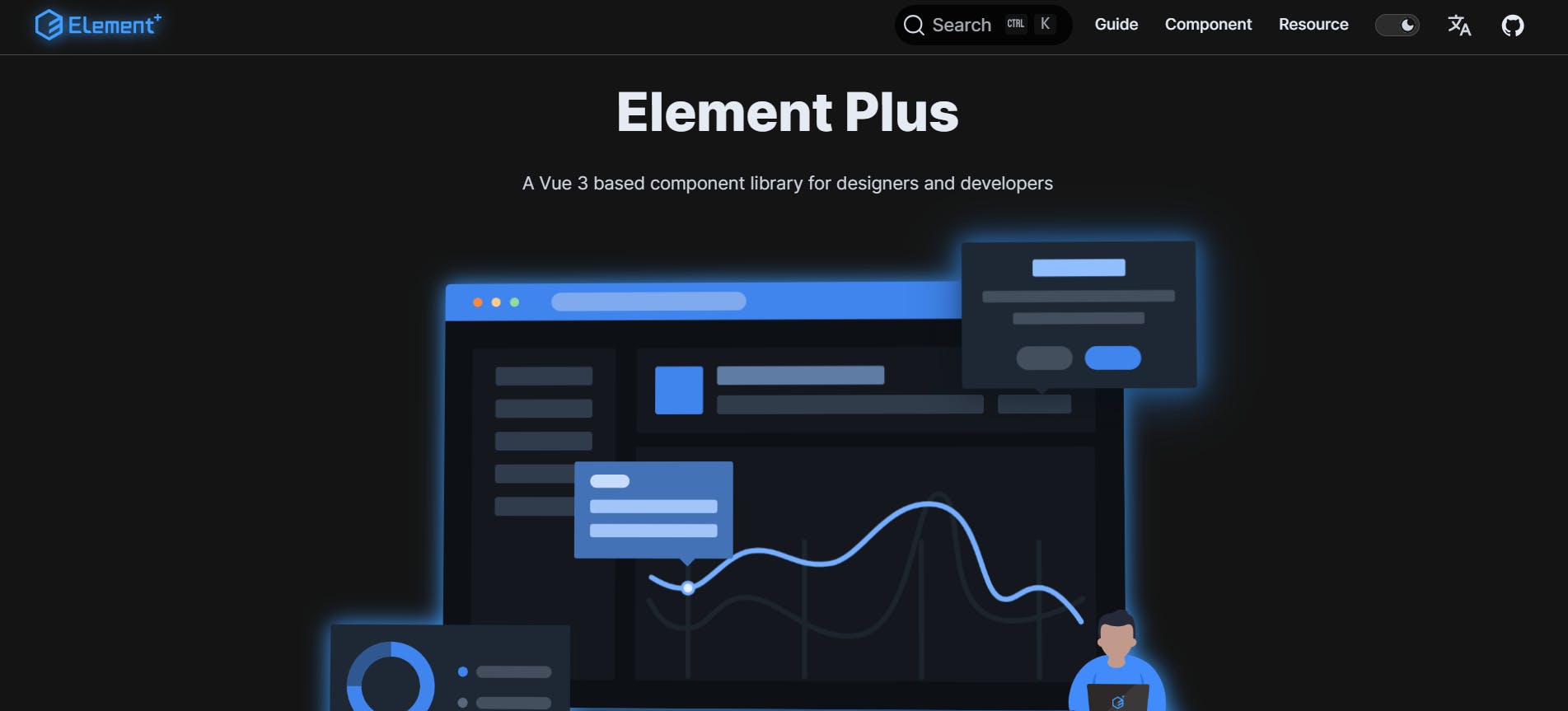
Element Plus is the successor of the widely used Element UI and is a great choice for small and large-scale projects. It builds upon the success of its predecessor and uses the latest features of Vue 3, including the Composition API.
Element Plus has 23.7k GitHub stars as of this writing.
Key features
- Offers 76 components
- Supports Vite, Webpack, and Nuxt
- Provides built-in transitions
- Supports SSR
- Dark mode
- Built-in internationalization (i18n) for 55 languages
5. Naive UI
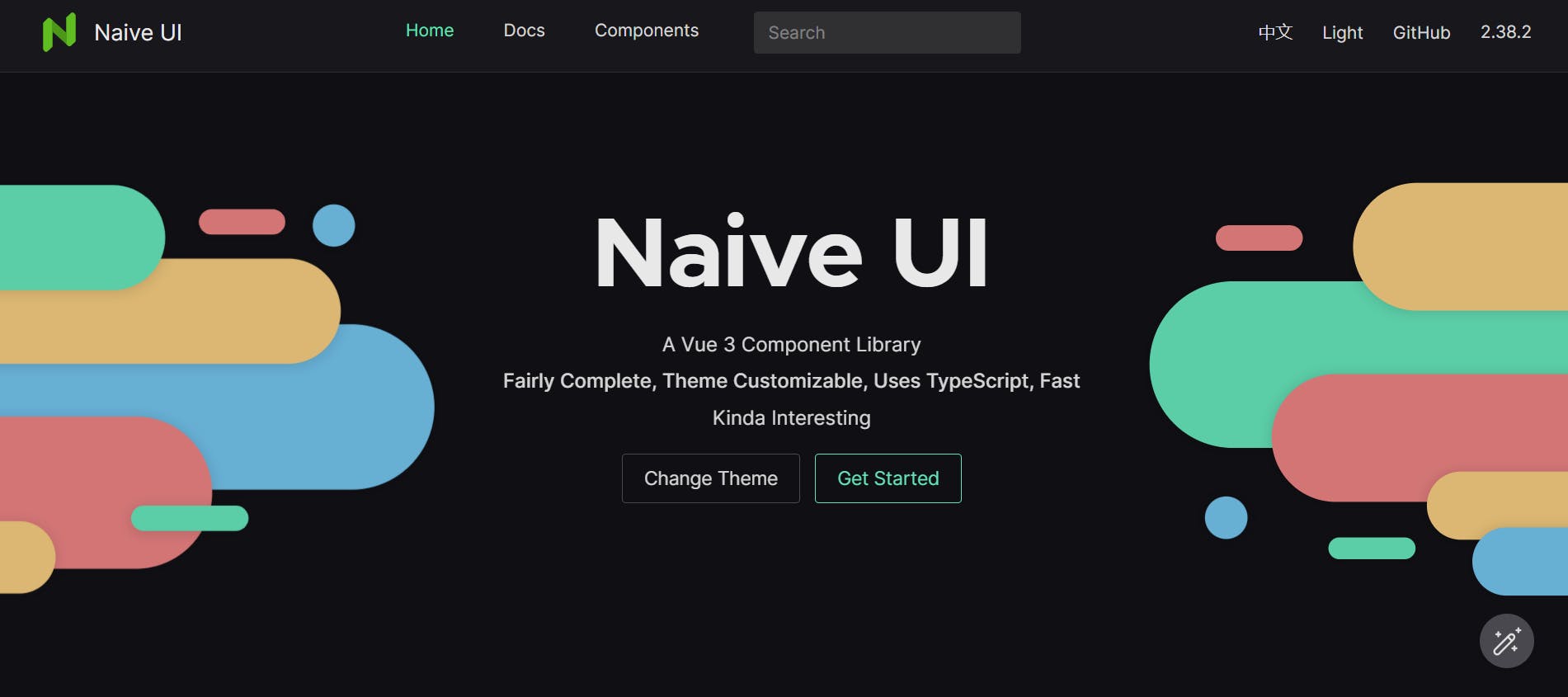
Naive UI is a Vue 3 component library emphasizing ease of use and developer experience. It focuses on simplicity, has a modern design, and offers components that are easy to integrate and customize.
Naive UI has 15.6k GitHub stars as of this writing.
Key features
- Offers 88 components
- Supports SSR
- Treeshaking
- Supports Vite, Vitepress, and Nuxt
- Built-in internationalization (i18n) for 26 languages
First time here? Discover what Prismic can do!
👋 Meet Prismic, your solution for creating performant websites! Developers, build with your preferred tech stack and deliver a visual page builder to marketers so they can quickly create on-brand pages independently!
6. BootstrapVue
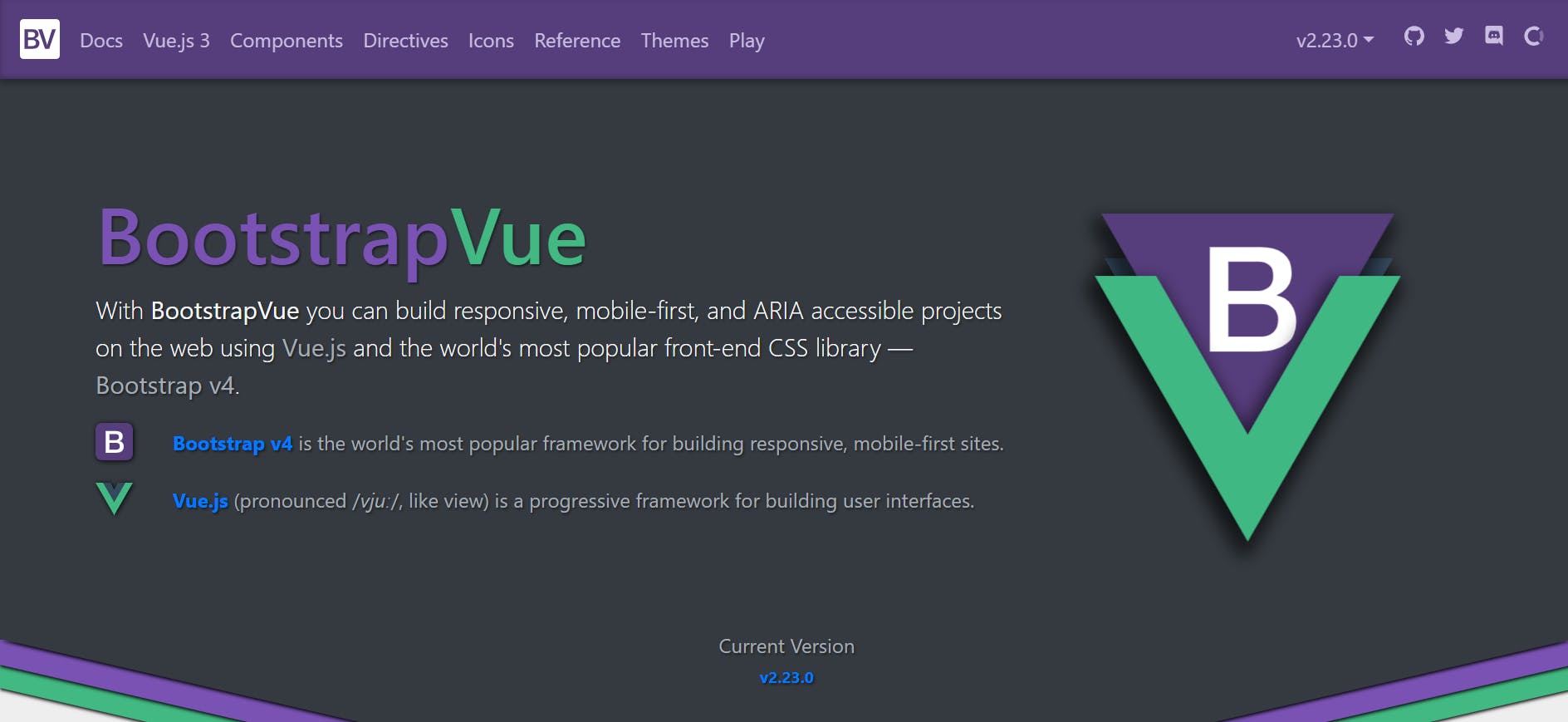
BootstrapVue brings the power of Bootstrap to the Vue ecosystem. It combines Bootstrap's styling framework with Vue's reactivity and component-based architecture.
BootsrapVue enables developers to combine Bootstrap’s familiar design approach with Vue’s flexibility and power. As of this writing, it has 14.5k GitHub stars.
Key features
- Offers 50 components
- Tree shaking support
- Supports Vue CLI 3 and Nuxt
- Offers premium themes
- Supports Vue 3
- Online playground
- Icon library
7. Ant Design Vue
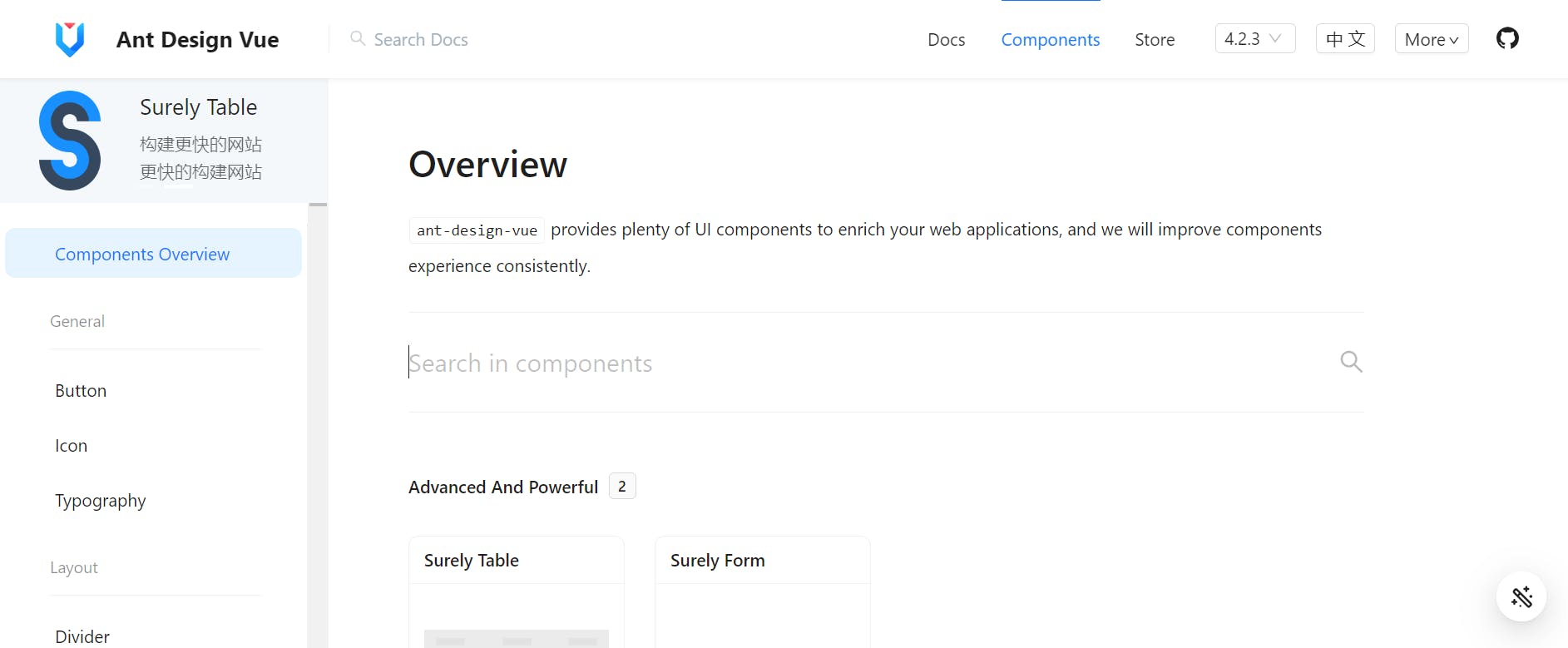
Ant Design Vue is the Vue adaptation of Ant Design, a widely used design system developed by Alibaba. It provides a comprehensive suite of high-quality components you can use to create elegant and user-friendly interfaces for web applications.
Ant Design Vue has 19.9k GitHub stars as of this writing.
Key features
- Offers 71 components
- Form validation functionality
- Paid themes
- Built-in icon library
- SSR support
- Supports internationalization (i18n) for 64 languages
8. Flowbite Vue 3

Flowbite Vue 3 is a component library built on top of Tailwind CSS. It offers various pre-designed components that you can easily integrate and customize. It focuses on providing developers with an efficient way to build responsive web applications with the utility-first approach of Tailwind CSS.
Flowbite Vue 3 has 692 GitHub stars as of this writing.
Key features
- Offers 37 components
- Supports Vue 3
- Built on Tailwind CSS
- Lightweight and fast
9. Equal UI
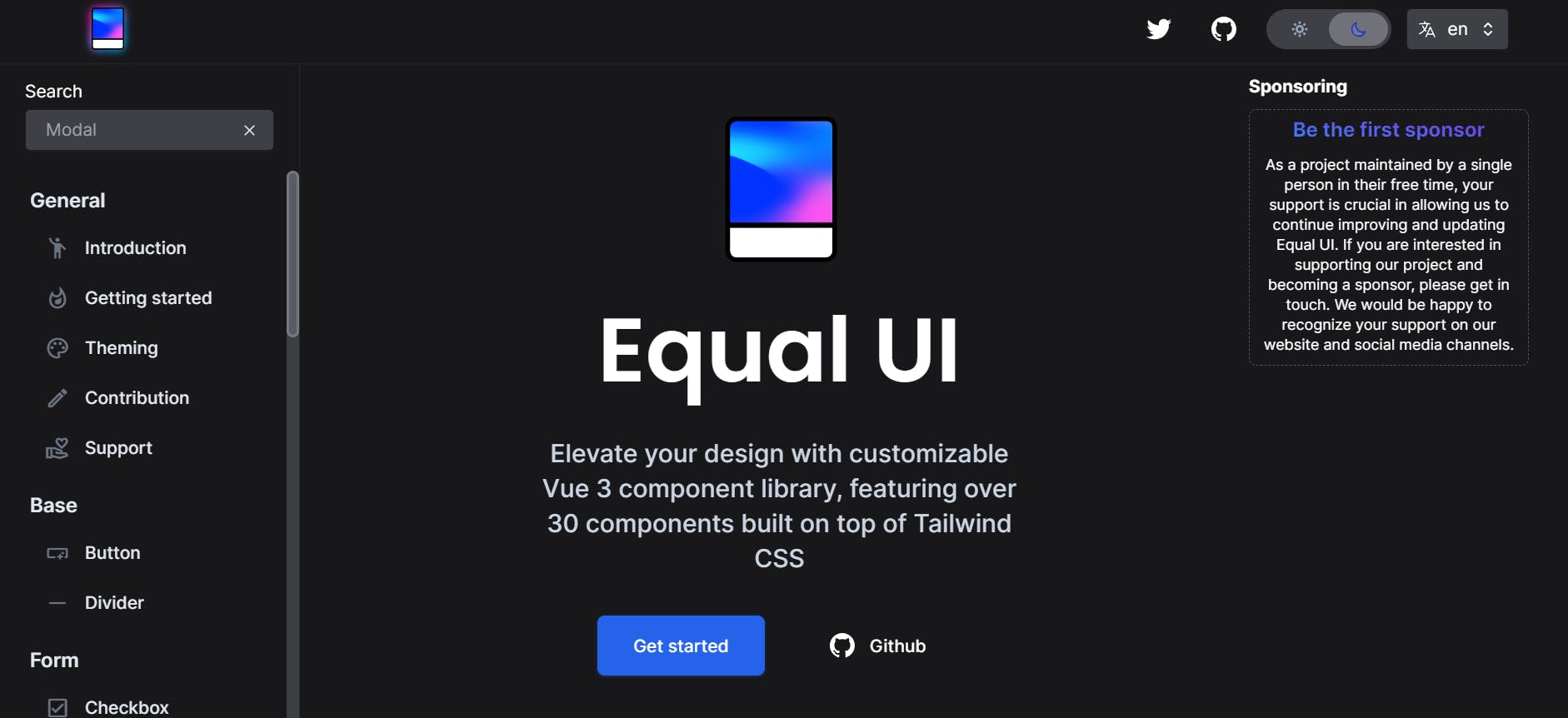
Equal UI aims to strike a balance between functionality and aesthetic appeal. It is a great choice for developers who need a clean and intuitive component library.
Equal UI has 1.2k GitHub stars as of this writing.
Key features
- Offers 30 components
- Dark mode
- Built on Tailwind CSS
- Built-in Vue transitions
10. Buefy
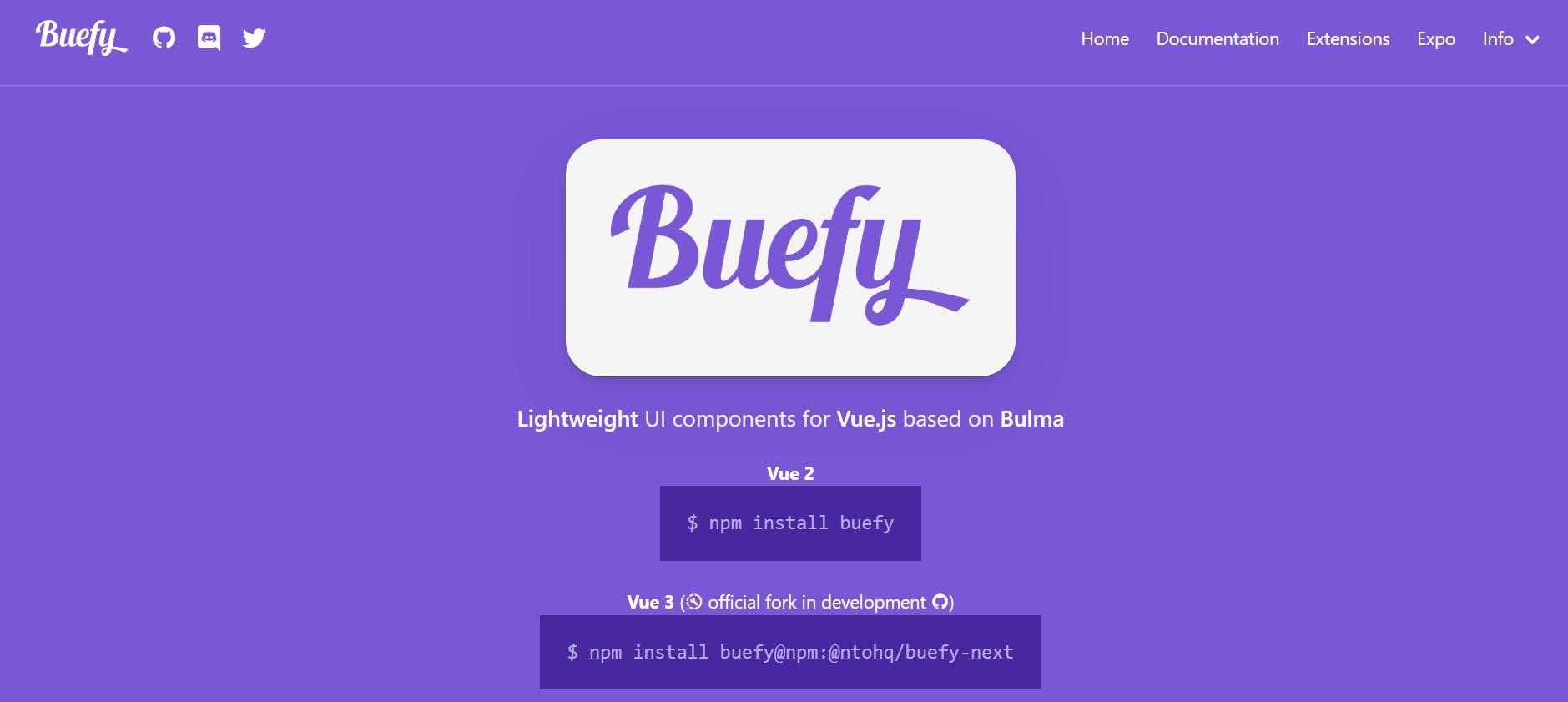
Buefy is a lightweight Vue component library built on the Bulma CSS framework. It provides a set of responsive and customizable components that you can use to quickly build user interfaces for your Vue applications.
Buefy has 9.5k GitHub stars as of this writing.
Key features
- Offers 57 components
- Built on Bulma CSS
- Supports extensions like Cleavejs and VeeValidate to extend its functionality
- Lightweight as Bulma CSS is the only dependency
Curious about React or Tailwind component libraries?
Dive into the following articles to learn more about other great component libraries in the web development ecosystem:
- Best 15 React UI component libraries
- 9 Best Tailwind Component Libraries
Top benefits of using a Vue component library
Let’s explore some reasons why Vue component libraries are worth using.
Streamline development process
A Vue component library can speed up your development process. These libraries offer pre-built, tested, and optimized components, allowing you to focus on other aspects of your application rather than reinventing the wheel.
Increased productivity leads to faster development cycles, speeds up development and reduces the potential for bugs and errors.
Provides accessible components out-of-the-box
Accessibility is a critical aspect of modern web development. Vue component libraries adhere to accessibility standards like WCAG, helping you create applications that are usable by a wider audience, including people with disabilities.
Consistent design and user experience
Component libraries are often built around established design systems. This ensures that websites built with them have a uniform look and feel across different devices and that users get the best experience.
Community support and updates
Most Vue component libraries are open-source and backed by a strong community of developers. This means that you can benefit from community-contributed components, themes, bug fixes, third-party plugins, and updates. These ensure that the library stays up-to-date with the latest best practices and improvements.
Active communities also provide resources like forums, blog posts, example projects, and YouTube videos, which can help you in your learning journey.
How to choose the right Vue component library
Selecting the appropriate Vue component library for your project is important. Here are key factors to consider:
Your project needs
Assess your project's specific requirements. Consider the types of components you'll need, the complexity of your application, and any unique functionalities your project demands.
Compatibility with the Vue version
Ensure the library is compatible with the Vue version you are using. Some libraries may not yet support the latest Vue versions or may be built for older versions.
Design and customization options
Look for libraries that offer design flexibility and customization options. Check if the library provides themes or allows you to create custom styles to match your project's branding.
Documentation and community support
Good documentation is essential for efficient development. Choose libraries with comprehensive, clear documentation and active community support, which are valuable for troubleshooting and future maintenance.
Performance and bundle size
Evaluate the performance impact of the library on your application. Libraries with smaller bundle sizes will generally lead to faster load times and better performance, which is particularly important for large-scale applications.
Project activity and maintenance
Check if the library is actively developed and maintained. The library's GitHub repository should contain recent commits, release notes, and notes on active issues.
An actively maintained project is more likely to have bug fixes, new features, and compatibility updates, while abandoned or archived projects might be outdated and not compatible with the latest Vue updates.
Conclusion
Choosing the right Vue component library can significantly enhance your development process, improve code quality, and ensure a seamless user experience.
The ten libraries we’ve covered in this article offer various pre-built, customizable components that can accelerate development and help you build visually appealing websites and applications. Consider using one of them for your next Vue project.
Have you used any of these libraries before? Drop a comment and share your experience with us; we’d love to hear about it.



